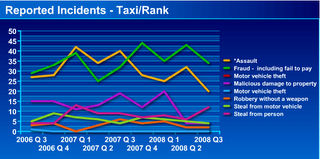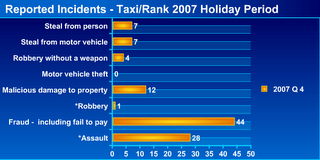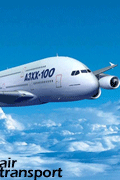|
FMCSA has broadened the capabilities of the FMCSA Portal, adding single sign- access to an additional six safety systems via a single password and user ID. Effective February 9, the Portal will provide single sign-on access to: - Query Central
- Analysis and Information (A&I) Online
- Safety and Fitness Electronic Records (SAFER)
- Hazardous Materials Package Inspection Program (HMPIP)
- InfoSys
- National Consumer Complaint Database (NCCDB)
The FMCSA Portal already provides single sign-on access to: - Motor Carrier Management Information System (MCMIS)
- Enforcement Management Information System (EMIS)
- Licensing and Insurance (L&I)
- DataQs
Another new feature added to the Portal is a Quick Links portlet that allows users to add, delete, and edit the links available on their Portal homepage. Updated online training is available via the Portal homepage and the account request form. The expanded access to safety data will allow FMCSA and State enforcement personnel to make better decisions, identify high- carriers and drivers more effectively, and apply a wider range of interventions to correct high-risk behavior sooner. Enforcement personnel will be able to quickly access crucial safety data in the six additional systems during roadside inspections or from other remote locations, using just one set of user credentials. Access to the Portal and these systems is via the Internet and does not require the use of the Virtual Private Network (VPN) or User Authentication System (UAS). The improved access to information will help carriers operate more safely and efficiently. Besides gaining single sign- access to A&I and the NCCDB, company users will also be able to access public functionality in L&I, SAFER, Commercial Vehicle Information Systems and Networks (CVISN), and the National Hazardous Material Route Registry (NHMRR). Both company and enforcement users will also gain access to the "Protect Your Move" and "Share the Road Safely" Web sites. Launched in September 2007, the FMCSA Portal is the first phase of the COMPASS business and information technology (IT) modernization program. More than 4,000 FMCSA and state enforcement and company users are now registered for the Portal. Over time, the Portal will provide access to all FMCSA safety systems. Rolling out new technology in phases rather than all at once is a standard process for executing a complex business transformation. Feedback will be solicited throughout the process to ensure that users' needs are met.
              
posted by transport blogs
@ 10:29 PM
permanent link |
|

posted by transport blogs
@ 11:03 PM
permanent link |
|

posted by transport blogs
@ 9:26 PM
permanent link |
|

posted by transport blogs
@ 9:03 PM
permanent link |
|

WASHINGTON, D.C. - U.S. Transportation Secretary Ray LaHood today met with leaders of state departments of transportation from across the country in preparation for final passage of the economic recovery bill.
"The upshot of these meetings is that we have thousands of worthwhile transportation projects that are ready to go. They've cleared all the hurdles and just need the funding," said Secretary LaHood. "The U.S. Department of Transportation is ready to get the money out the door. We now need the Congress to pass a final bill."
The meeting, which took place in the Eisenhower Executive Office Building, came one day after the U.S. Senate approved the Recovery and Reinvestment Act. The House passed its version on January 28. Both bills now go to a House-Senate conference committee where the differences in the legislation will be resolved.
North Carolina Secretary of Transportation Eugene Conti, one of more than 40 state transportation heads at the meeting, said, "NCDOT, along with other transportation departments across the nation, has been working to identify projects that would both improve our transportation system and create needed jobs. This funding is key to helping us address the growing economic and infrastructure challenges we are currently facing."
Secretary LaHood said the bills passed provide approximately $46 billion for transportation infrastructure, including up to $30 billion for highways, $12 billion for transit, $3.1 billion for passenger rail and $3 billion for airports. In addition, the Senate bill also includes $5.5 billion for a supplemental discretionary grant program. Eligible projects include highways and bridges, public transit, passenger and freight rail transportation and port infrastructure.
Secretary LaHood told participants that accountability would be one of his highest priorities and that his Transportation Investment Generating Economic Recovery (TIGER) team would be closely monitoring all aspects of the recovery funding.
The Secretary's TIGER team is composed of officials from across the Department's operating administrations and offices. The team is co-chaired by Lana Hurdle, deputy assistant secretary for budget and programs, and Joel Szabat, deputy assistant secretary for transportation policy.
              
posted by transport blogs
@ 8:22 PM
permanent link |
|

The on-time performance of the nation's largest airlines improved in 2008 compared to the previous year, according to the Air Travel Consumer Report released today by the U.S. Department of Transportation (DOT).
According to information filed with the Bureau of Transportation Statistics (BTS), a part of DOT's Research and Innovative Technology Administration (RITA), the 19 carriers reporting on-time performance recorded an overall on-time arrival rate of 76.0 percent for January through December 2008, up from 2007's 73.4 percent rate. During December 2008, the carriers posted an on-time performance rate of 65.3 percent, up from December 2007’s 64.3 percent but down from November 2008's 83.3 percent.
The monthly report also includes data on lengthy tarmac delays, flight cancellations and the causes of flight delays by the reporting carriers, as well as information on reports of mishandled baggage filed with the carriers, airline bumping, and consumer service, disability and discrimination complaints received by DOT's Aviation Consumer Protection Division. This report also includes reports of incidents involving pets traveling by air, as required to be filed by U.S. carriers.
Cancellations
The consumer report includes BTS data on the number of domestic flights canceled by the reporting carriers. In December, the carriers canceled 3.3 percent of their scheduled domestic flights, down from the 3.5 percent cancellation rate of December 2007 but higher than the 0.8 percent rate posted in November 2008.
Tarmac Delays
In December, the carriers filing on-time performance data reported that .0003 percent of their scheduled flights had tarmac delays of three hours or more, up from .00002 percent in November. BTS is reviewing other parts of the tarmac data reported by carriers for October through December, the first three months carriers have reported this data. Data will be released when the review is completed.
Causes of Flight Delays
In December, the carriers filing on-time performance data reported that 10.57 percent of their flights were delayed by aviation system delays, compared to 6.56 percent in November; 11.13 percent by late-arriving aircraft, compared to 4.79 percent in November; 7.65 percent by factors within the airline's control, such as maintenance or crew problems, compared to 3.89 percent in November; 1.53 percent by extreme weather, compared to 0.37 percent in November; and 0.07 percent for security reasons, compared to 0.02 percent in November. Weather is a factor in both the extreme-weather category and the aviation-system category. This includes delays due to the re-routing of flights by DOT's Federal Aviation Administration in consultation with the carriers involved. Weather is also a factor in delays attributed to late-arriving aircraft, although airlines do not report specific causes in that category.
Data collected by BTS also show the percentage of late flights delayed by weather, including those reported in either the category of extreme weather or included in National Aviation System delays. In December, 45.36 percent of late flights were delayed by weather, up 4.18 percent from December 2007, when 43.54 percent of late flights were delayed by weather, and up 7.79 percent from November when 42.08 percent of late flights were delayed by weather.
Detailed information on flight delays and their causes is available on the BTS site on the World Wide Web at http://www.bts.gov.
Mishandled Baggage
The U.S. carriers reporting flight delays and mishandled baggage data posted a mishandled baggage rate of 6.96 reports per 1,000 passengers in December, an improvement over December 2007's rate of 9.05 but higher than November 2008's 3.75 rate. For all of last year, the carriers posted a mishandled baggage rate of 5.26 per 1,000 passengers, an improvement over 2007’s rate of 7.05.
Bumping
The report also includes airline reports of involuntary denied boarding, or bumping, for 2008 and the fourth quarter of last year. In 2008, the U.S. carriers that report on-time performance, mishandled baggage data and bumping totals had a bumping rate of 1.10 per 10,000 passengers, down from the 1.12 rate for 2007. For the fourth quarter of 2008, the carriers recorded a bumping rate of 1.10 per 10,000 passengers, up from the 0.83 rate recorded during the fourth quarter of 2007.
Incidents Involving Pets
In December, carriers reported one incident involving pets while traveling by air, compared to six incidents in November. December's incident involved the death of a pet.
Complaints About Airline Service
In December, the Department received 700 complaints about airline service from consumers, down 17.8 percent from the 852 complaints filed in December 2007 but 31.6 percent more than the total of 532 received in November 2008. For all of last year, the Department received 10,643 air service complaints, 19.2 percent fewer than the 13,180 complaints filed in 2007.
Complaints About Treatment of Disabled Passengers
The report also contains a tabulation of complaints filed with DOT against airlines regarding the treatment of passengers with disabilities. The Department received a total of 33 disability-related complaints in December, 65.0 percent more than the 20 complaints received in December 2007 and 17.9 percent more than the total of 28 filed in November 2008. For all of last year, the Department received 474 disability-related complaints, down 2.9 percent from the total of 488 received in 2007.
Complaints About Discrimination
In December, the Department received seven complaints alleging discrimination by airlines due to factors other than disability – such as race, religion, national origin or sex – up from the two complaints recorded in December 2007 and equal to the total of seven filed in November 2008. For all of last year, the Department received 115 discrimination complaints, up 16.2 percent from the total of 99 filed in 2007.
Consumers may file their complaints in writing with the Aviation Consumer Protection Division, U.S. Department of Transportation, C-75, W96-432, 1200 New Jersey Ave. SE, Washington, DC 20590; by voice mail at (202) 366-2220 or by TTY at (202) 366-0511; or on the web at http://airconsumer.dot.gov.
Consumers who want on-time performance data for specific flights should call their airline's reservation number or their travel agent. This information is available on the computerized reservation systems used by these agents.
The Air Travel Consumer Report can be found on DOT's World Wide Web site at . It is available in "pdf" and Microsoft Word format.
For more information visit here
              
posted by transport blogs
@ 9:26 PM
permanent link |
|

The U. S. Department of Transportation (DOT) today announced a $1.4 million grant to the Paducah Area Transit System to provide enhanced, cost-effective transportation choices for older adults, people with disabilities and low-income populations in Paducah, KY. The Paducah Area Transit System is using the funding for the expansion of an existing call center to cover a larger geographic area and provide around-the-clock access to traveler support. The strengthened call center will add customer-oriented features, such as automated telephone and Internet-based trip reservations and management. The U.S. Department of Transportation (DOT) today announced a $700,000 grant to the Camden County Workforce Investment Board to provide enhanced, cost-effective transportation choices for older adults, people with disabilities and low-income populations in Camden County, NJ. The Camden County Workforce Investment Board is using the funding for planning and designing a transportation brokerage system supported by a comprehensive set of transportation modes, and for promoting fixed-route public transportation usage for human service clients through accessibility improvement. The U.S. Department of Transportation today awarded a $680,000 grant to the Lower Savannah Council of Governments to provide enhanced, cost-effective transportation choices for older adults, people with disabilities and low-income populations in Aiken, SC. The Lower Savannah Council of Governments is using the funding for planning and designing an expanded human service transportation network to include more human service transportation providers and vehicle tracking abilities such as global positioning systems (GPS) and to enable customers to receive information and manage their own trips through a toll-free number and web-based applications. The United We Ride/Mobility for All Americans joint demonstration adopts a two-phased approach. Eight sites were selected to in 2007 participate in Phase 1, which was system planning and design. Aiken is one of three Phase 1 sites selected to move forward to system deployment, the second phase of the program. Funding for the demonstration is provided by the Intelligent Transportation System Joint Program Office of the Research and Innovative Technology Administration in Partnership with the Federal Transit Administration For more information visit here http://www.dot.gov/
              
posted by transport blogs
@ 10:33 PM
permanent link |
|

- Obtain an International Driving Permit (IDP).
- Carry both your IDP and your U.S. state driver's license with you at all times, as many countries have different driving rules. If possible, obtain a copy of the foreign country’s driving laws before you begin driving in that country. Information may be available from the foreign country’s embassy in the United States, foreign government tourism offices, or from a car rental company in the foreign country.
- Check to see if the country of destination has a minimum and maximum driving age.
- Be aware that certain countries require special road permits, instead of tolls, to use their divided highways, and they will fine those found driving without a permit.
- Always "buckle up." Some countries have penalties for people who violate this law.
- Many countries require you to honk your horn before going around a sharp corner or to flash your lights before passing.
- If you rent a car, make sure you have liability insurance. If you do not, this could lead to financial hardship.
- If the drivers in the country you are visiting drive on the left side of the road, it may be prudent to practice driving in a less populated area before attempting to drive in heavy traffic.
- Always know the route you will be traveling. Have a good road map, and chart your course before beginning.
- Do not pick up hitchhikers or strangers.
- When entering or exiting your vehicle, be aware of your surroundings.
              
posted by transport blogs
@ 8:55 PM
permanent link |
|

|
![]()
![]()










